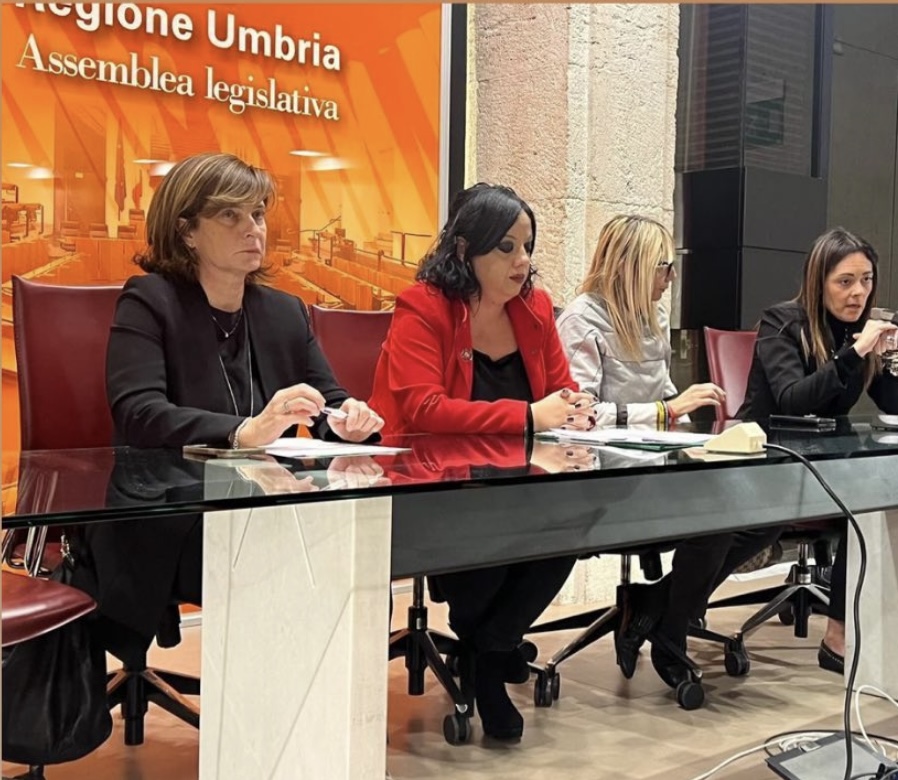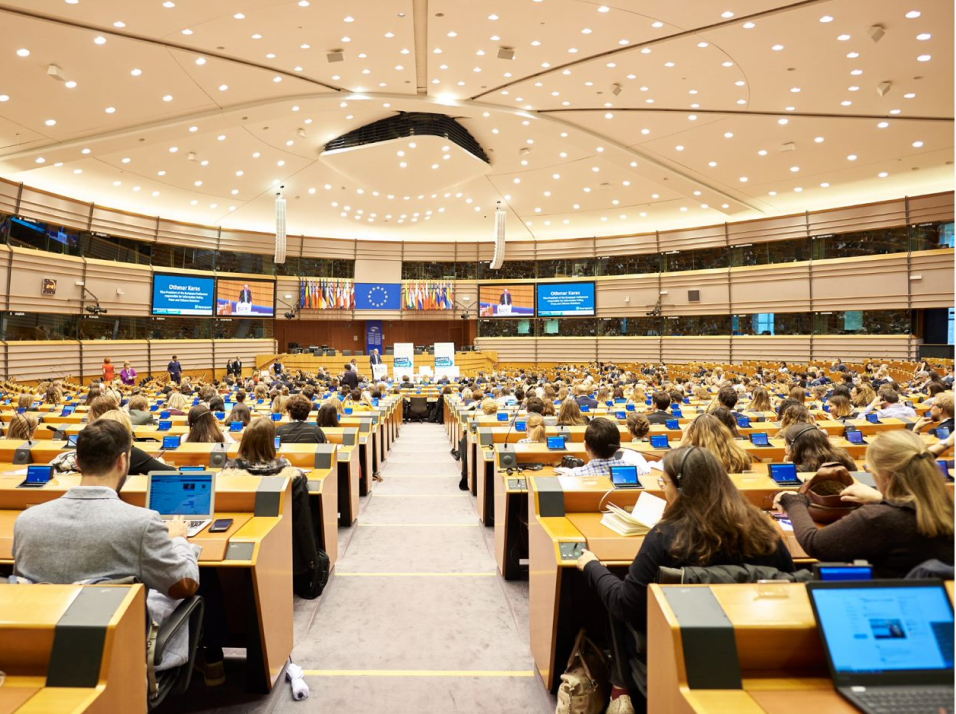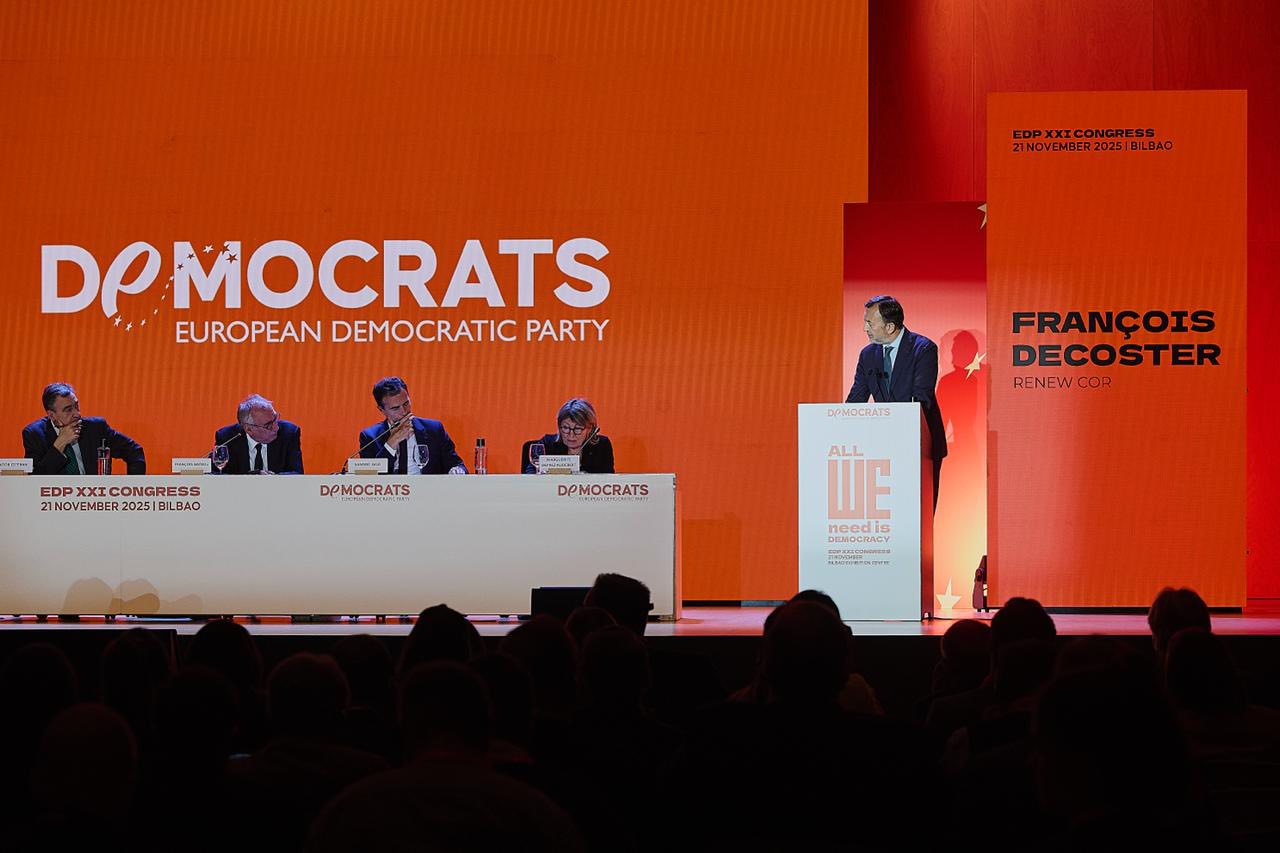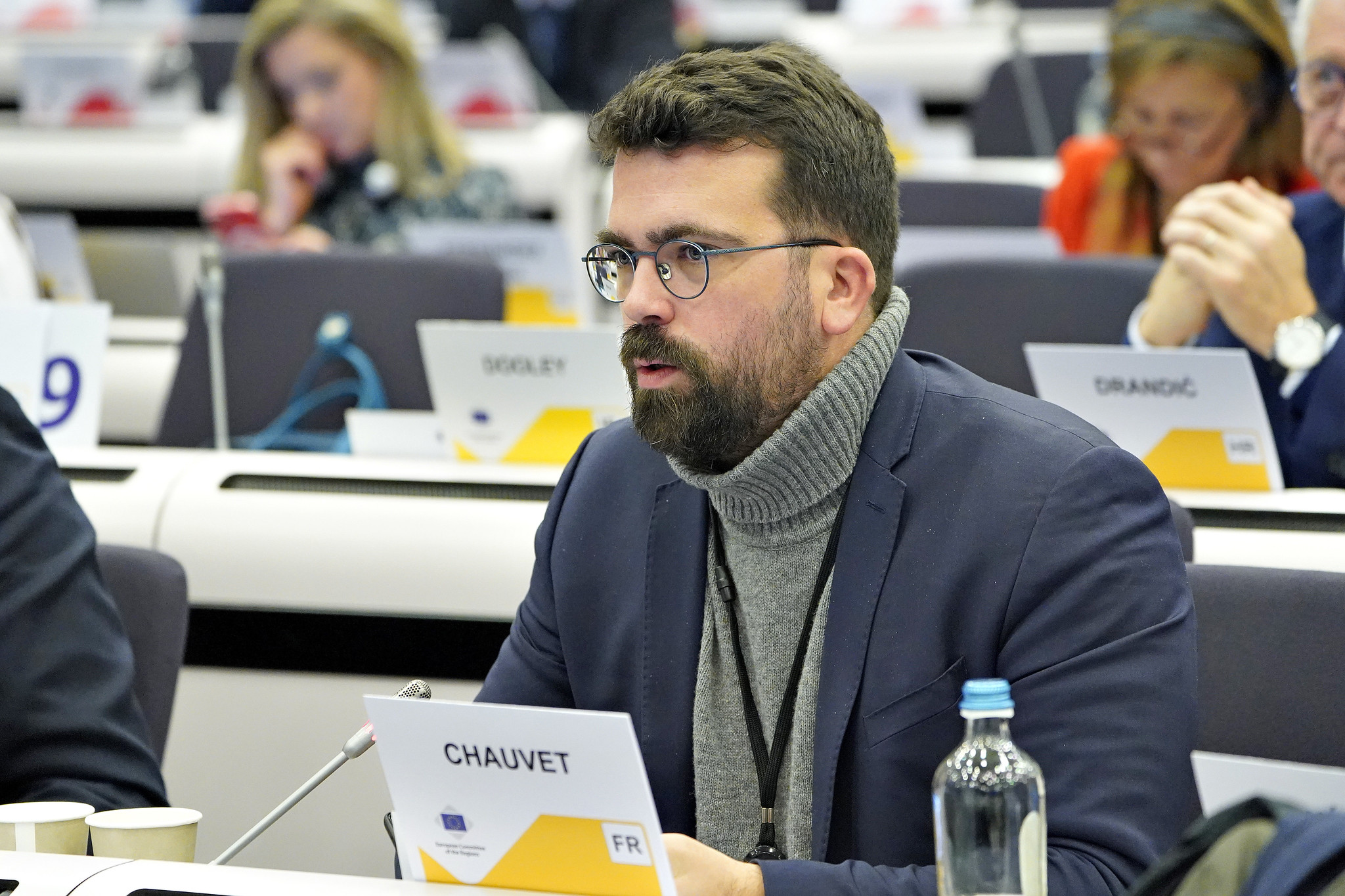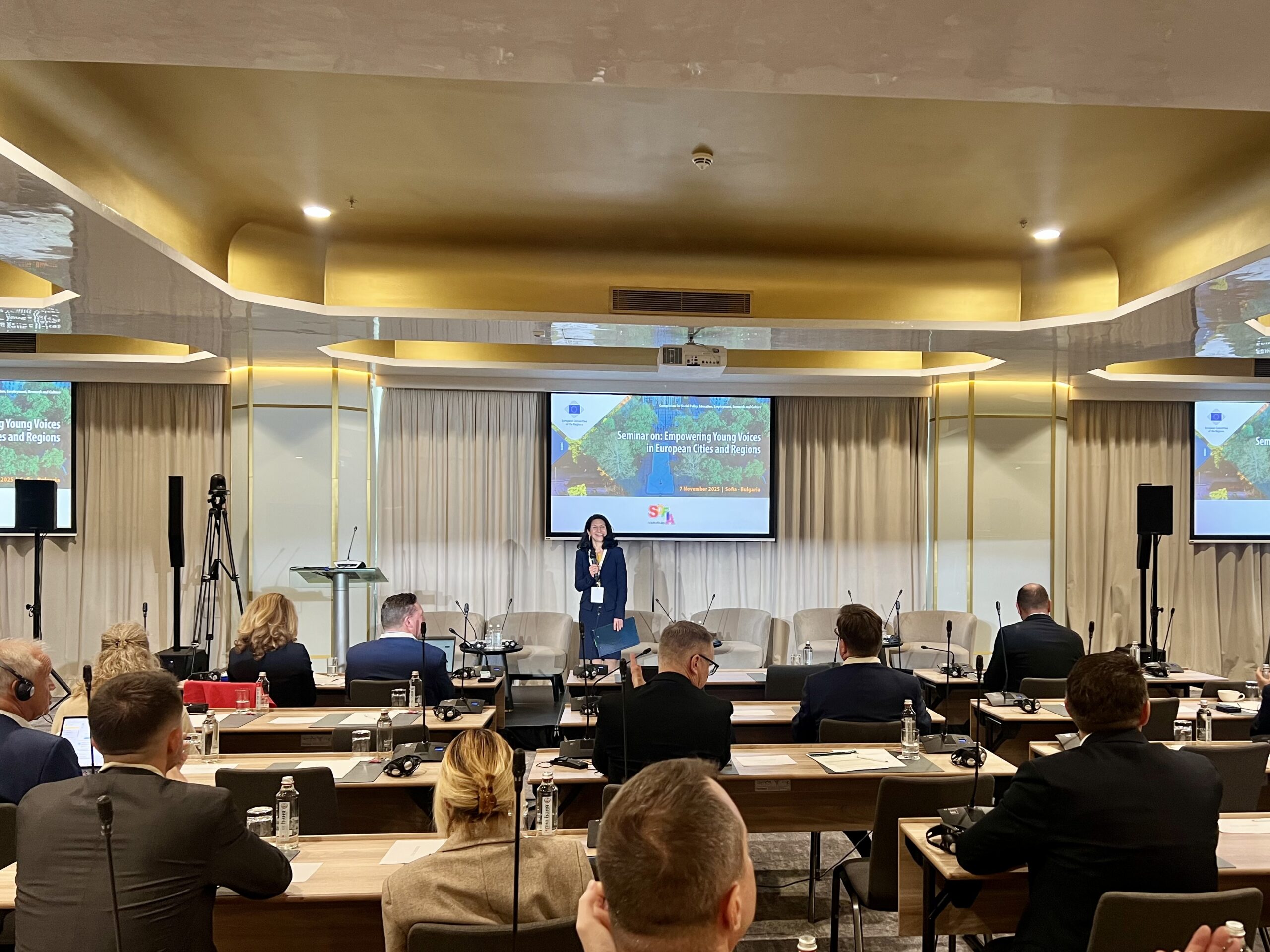At the European Committee of the Regions plenary, Renew Europe CoR members presented and debated two reports: “Stopping gender-based violence” by Donatella Porzi, and the “EU anti-corruption framework” by Jean-Luc Vanraes. Other highlights were the debate on the future of Cohesion Policy with European Commissioner Ferreira, or the opening of the Cities and Regions for International Partnerships 2023 forum “Localising global Gateway” with Jutta Urpilainen.
THURSDAY 30 NOVEMBER
In the debate on EU local matters, Anne Rudisuhli took the floor to discuss “local strategies to combat the rise of Antisemitic Acts in European Cities and Regions”.
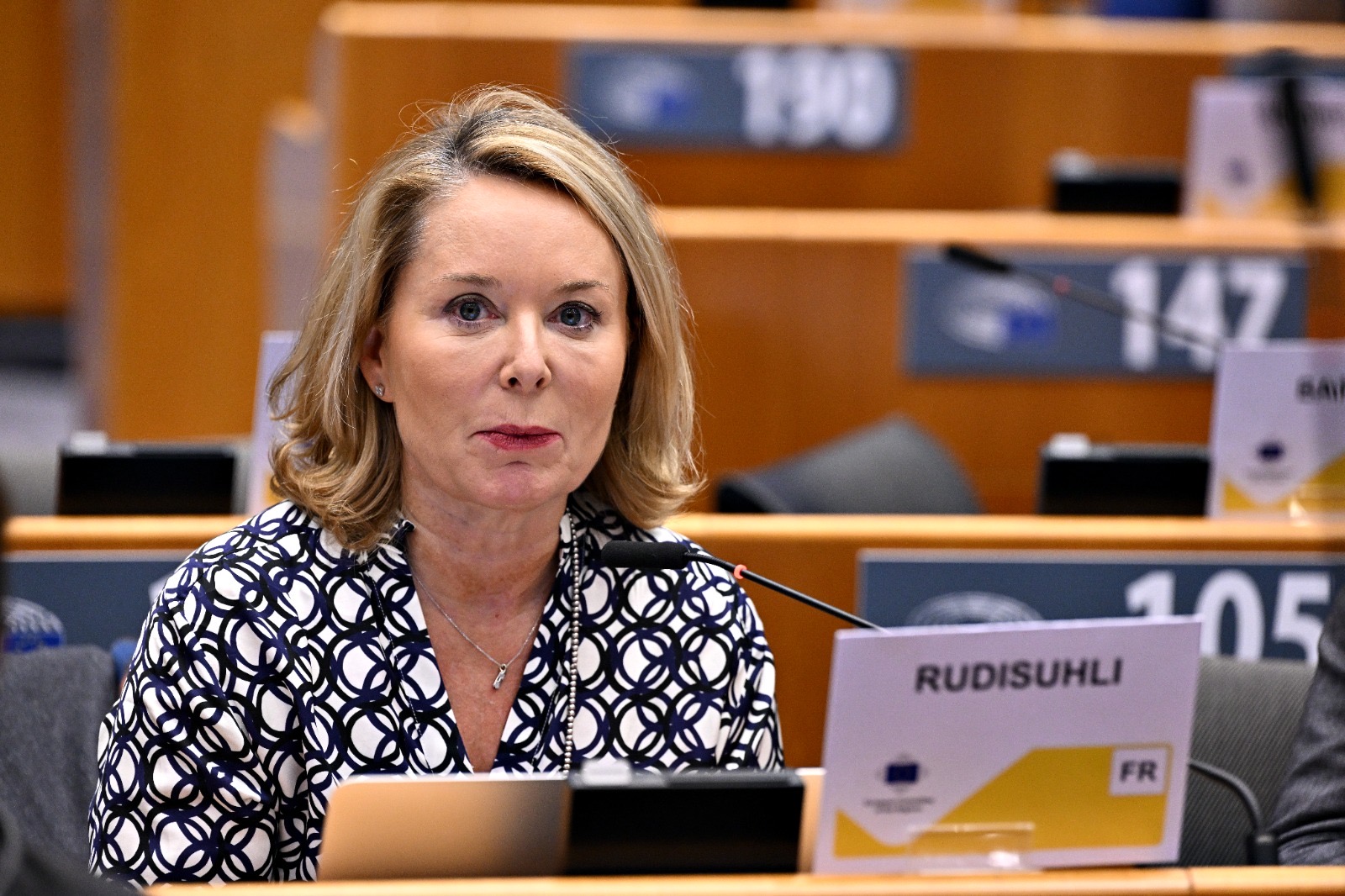
Her full speech:
“Je prends la parole sur un sujet que je n’aurais jamais pensé à nouveau d’actualité : la résurgence de l’antisémitisme en Europe.
Il atteint depuis le 7 octobre des proportions inédites depuis la seconde guerre mondiale : Plus de 1500 actes antisémites en France, messages de haines sur les RS, tombes profanées en Belgique, cocktailsMolotov envoyés sur une synagogue en Allemagne, idem aux Pays-Bas, en Autriche etc
De nombreux juifs ont peur au point de cacher leur nom quand ils prennent un taxi ou se font livrer à leur domicile.
Dans nos villes, nous avons dû renforcer la sécurité aux abords des écoles, des lieux de cultes, des centres culturels et des mémoriaux.
Mais ce fléau ne tombe pas du ciel.
Il est de notre responsabilité d’élus de nommer leschoses – qu’on arrête de se contenter de formuler des phrases creuses comme « stop à l’antisémitisme »
L’antisémitisme a plusieurs visages, sachons les reconnaître avec courage et lucidité : il va des extrémismes de droite et de gauche jusqu’à l’islamisme.
Dénoncer ce fanatisme n’est pas jeter l’opprobre sur les musulmans.
Nous devons fermer les lieux où se prêche la haine,
Nous devons saisir systématiquement la Justice,
Nous devons assurer à nos professeurs qu’ils seront protégés quand ils enseignent l’histoire de la Shoah, la philosophie ou les sciences,
Nous devons renforcer les programmes éducatifs et mieux accompagner et transmettre les valeurs universalistes qui fondent notre Europe et ce dès le plus jeune âge
Et surtout arrêter ce silence coupable qui finit par tuer
Allons-nous tolérer longtemps que des enfants soient angoissés chaque matin en se rendant à l’école ?
Notre Comité des régions doit répondre à ces questions et y faire face – créons ensemble un espace de discussion, d’échanges de pratiques, de solutions qui fonctionnent, de programmes pédagogiques innovants comme celui de la fondation du camp des milles à Aix.
Tout ce qui pourra nous aider à démonter les préjugés et à lutter contre la désinformation.
L’éducation ne relève pas à ce jour des Compétence de l’UE mais face à ces tragédies nous pouvons nous demander si elle ne doit le devenir et au plus vite.”
—
Discussing the opening of the cities and regions for international partnerships 2023 Forum “Localising Global Gateway” with European Commissioner Jutta Urpilainen, Martin Van Gruijthyijsen stressed investing and innovation as key aspects to be included: “We need the whole world to cooperate, because many of our products are produced by our companies, but they exist in a highly competitive world market. Investment and innovation are therefore the two aspects that we need to focus on in EU projects. Regions and cities have specific knowledge and competences when it comes to several areas like water management or critical raw materials. As such, they need to be recognised as relevant partners in this forum. In this way, prosperity is born in all regions all over the world”.
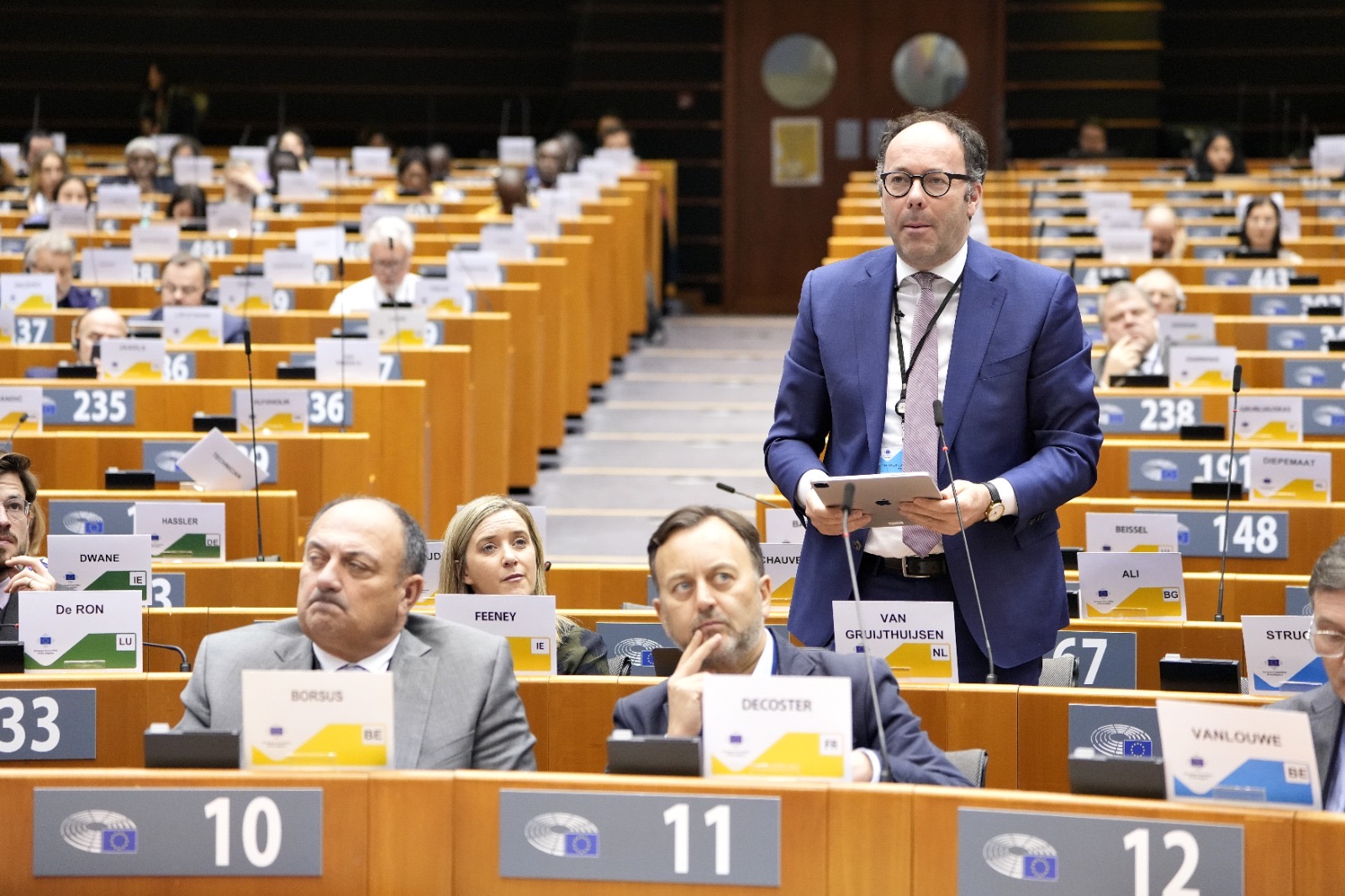
WEDNESDAY 29 NOVEMBER
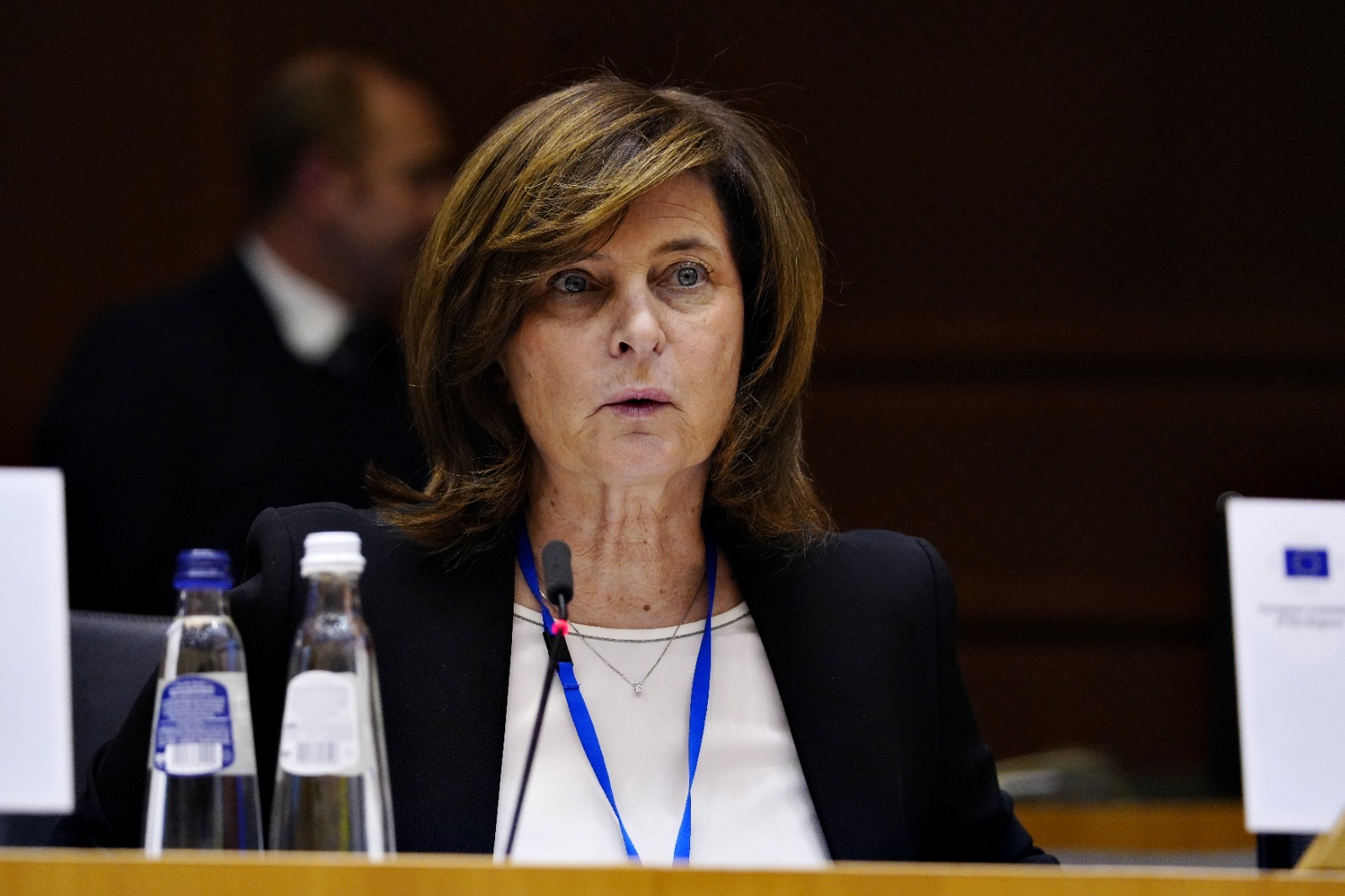
Donatella Porzi’s report, “Stopping gender-based violence: cities and regions leading the way”, was unanimously adopted by the European Committee of the Regions plenary.
Full speech:
I would like to emphasise the importance of the timing for adopting an opinion today on how cities and regions can stop gender-based violence. Last Saturday was the International Day for the Elimination of Violence against Women – a day that was formalised by the United Nations in 1999 in memory of three courageous women who paid with their lives for their fight for freedom. With this day, the 16-day period dedicated to activism against gender-based violence began. A period and a day strongly needed still to remind us of the painful reality we are living in – as we witnessed recently also in my country.
In Italy, something changed after the dramatic death of the young Giulia Cecchettin at the hands of her ex-boyfriend. It was the 105th feminicide since the beginning of the year, it awakened in all of us a rage that spilled out into the streets and squares, a healthy and peaceful rage to respond with reason and culture to ‘a poisonous weed that afflicts our society and that must be eradicated from the roots’, as Pope Francis wrote. It is a rage that calls for a great cultural revolution that cannot be limited to countering violence with ‘intermittent indignities’, as underlined by our President of the Republic.
Eradicating this abomination is not only up to women and not only up to the national level. This is what I tried to transmit with the opinion that I present to you today, placing education in its heart, surrounded by the need to gather more data, invest more efforts in also short term prevention, not forgetting victim protection and funding.
In anticipation of the next update of national data on GBV in 2024, we as LRAs are best placed to know that the lack of information hinders the understanding and management of the phenomenon. While acknowledging that some states, such as Italy, regularly collect data on gender-based violence, I wanted to highlight the problem of heterogeneity between national data and point to the importance of going beyond – or in this case under. While it seems difficult for LRAs to access and gather administrative data, their proximity to the people can help painting a more realistic picture of the problem by conducting among others population surveys. Let us not be oblivious to the fact that differences exist not only between member states, but also between urban and rural areas and the underlying causes and logics present in the territories.
But our role goes way beyond gathering data. We have the power of prevention in our hands. Gender-sensitive policies create a safe public environment for all our citizens. And it can be done through even the simplest actions such as lighting, access to public transport and many more. I believe that a CoR platform on exchange of such practices can be a game changer for their dissemination.
And– education – education of the society as a whole, education of all the staff working with potential victims, as well as perpetrators, of our youth…of ourselves as the ones who should lead by example is needed. Culture and education are within our remits and therewith also the obligation to act. The promotion of lasting social change and gender equality can be achieved through awareness-raising and education campaigns that address the roots of gender-based violence, focusing on inequalities in roles and power dynamics. Unfortunately, many campaigns do not reach the target groups in a meaningful way so it will be crucial to adapt them to the public.
Our opinion draws attention also to the immediate protection of victims, calling for a victim- and rights-centred approach at all levels of government, highlighting the crucial role of local and regional authorities in addressing victims’ needs. It is clear that this is an ambitious project, which needs time and which can only be realised with the shared support of the EU and national levels. While appreciating the funding provided through existing EU funds we are all also aware of the existing geographical distribution disbalance. So, I call for Gender responsive budgeting in the upcoming MFF, national, but also regional and local budgets to become the norm to go hand in hand with a strong financial boost from above – if we do not want to have to commemorate days like the also in 300 years from now.
Eradicating gender based violence is at least no longer a matter of political division – but it needs to move away from political statements to real-life action. So I would like to close my introduction by calling for all CoR members, our Young Elected Politicians, our European Councillors – take a step further in your communities and join the cross-political initiative – the “European Charter for Equality of Women and Men in Local Life”. Change should start with us!
—
Mirja Vehkapera in the debate with European Commissioner Ferreira showed how Cohesion Policy helped develop her region, how it helped the export, digitization, energy projects and cross-border cooperation in energy and rail traffic . She added that: “Without a strong Cohesion Policy and funding, my region wouldn’t be as developed as it is now. It is therefore important for every region that Cohesion Policy is predictable; priorities must be upheld. When faced with temporary crisis such as natural disasters or as with the Covid-pandemic, we need different funding, faster instruments than the traditional cohesion funding as the cohesion funds will help us answer challenges like the green transition and a sustainable use of natural resources.“
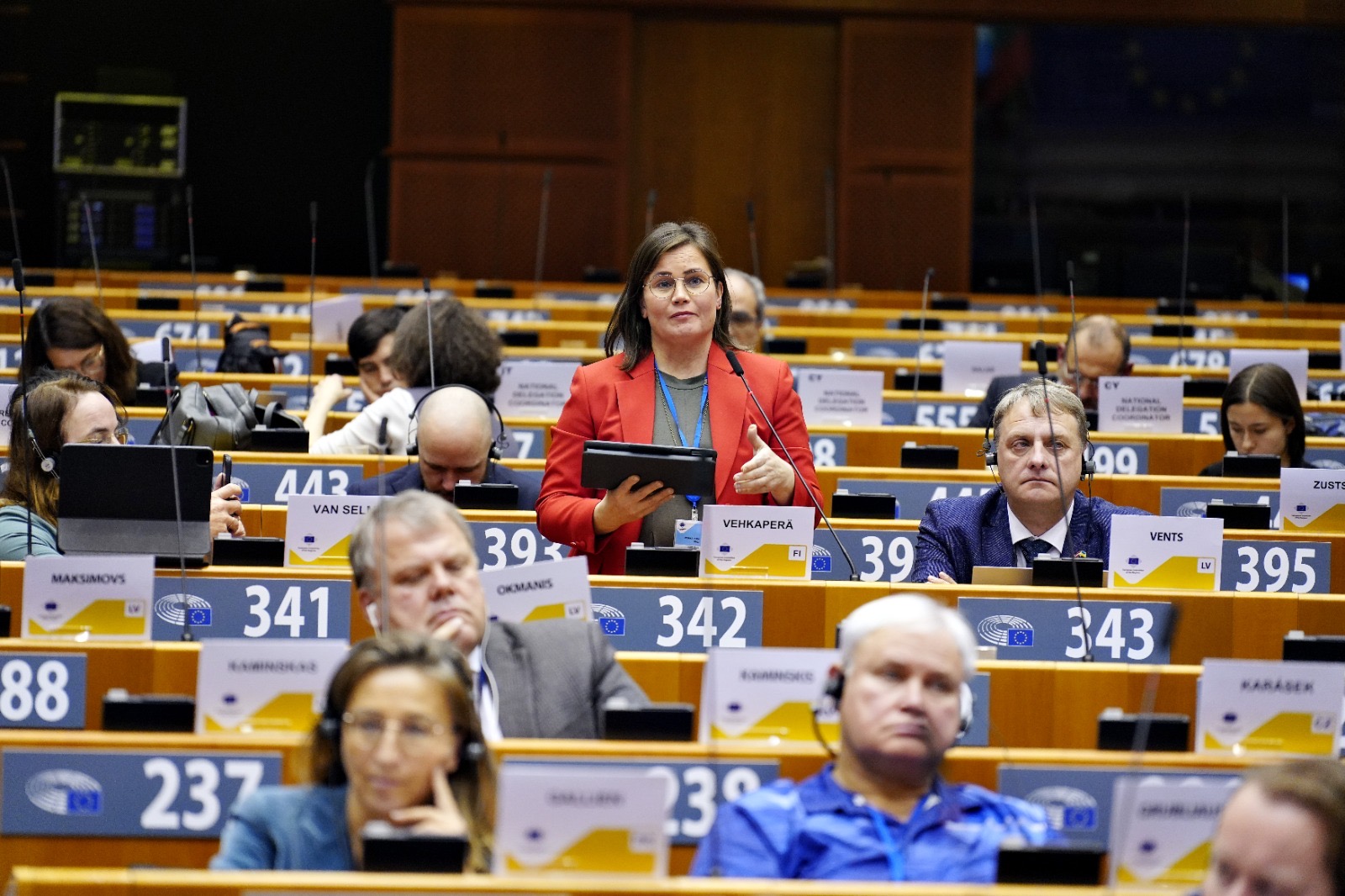
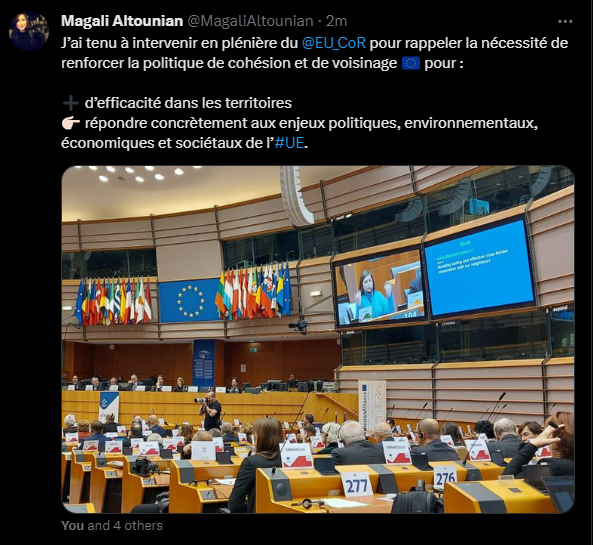
—
Vanraes’ report, “The EU anti-corruption Framework”, was adopted unanimously by the full European Committee of the Regions plenary.
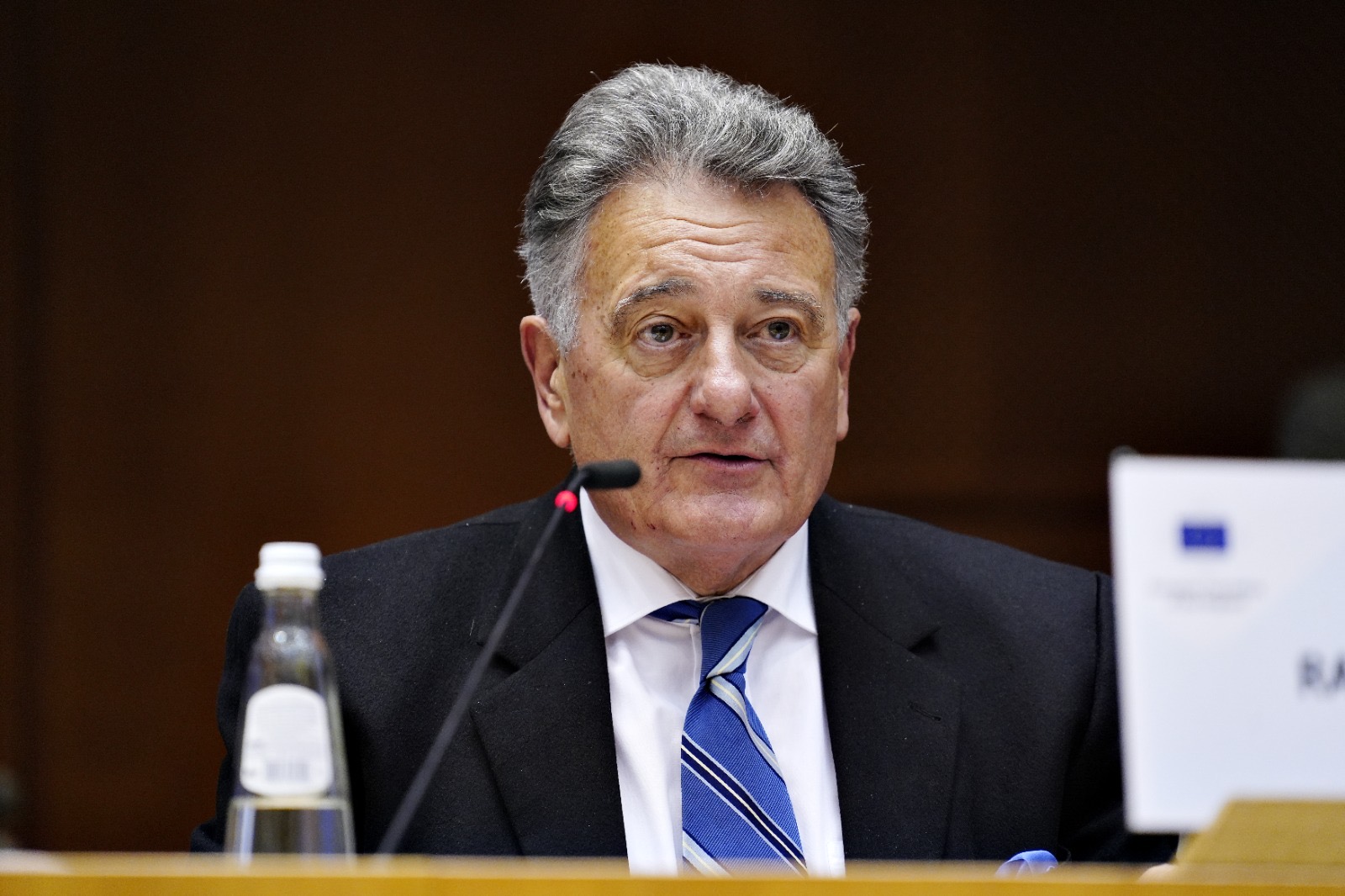
—
Ahead of the European Committee of the Regions plenary session where her report will be debated, Donatella Porzi continues to fight for women’s rights, and marked the Day of the Elimination of Violence against Women. You can read our article here, but here’s the full text:
No excuse for gender-based violence, says Donatella Porzi”
Ahead of the European Committee of the Regions plenary session where her report will be debated, Donatella Porzi continues to fight for women’s rights
Recently in Italy, the murder of Giulia Cecchettin, a 22-year-old student, shows us that violence against women is an ongoing phenomenon in our societies, one which we must end as fast as possible.
Donatella Porzi, councillor in Umbria, actively fights for women’s rights through the regional commission of inquiry on feminicide and any form of gender violence, established in Umbria at her own proposal. As rapporteur on the European Committee of the Regions report on stopping Gender-based Violence, which will be debated and voted on this week, she sets out a list of actions for cities and regions to lead the fight and proactively prevent gender-based violence from happening in the first place.
“As a woman, as a mother of two young men and as a teacher, I hope that one day we will live in a world without a Day of the Elimination of Violence against Women (this year on Saturday 25 November). I hope that one day gender-based violence will just be a relic of the past”
